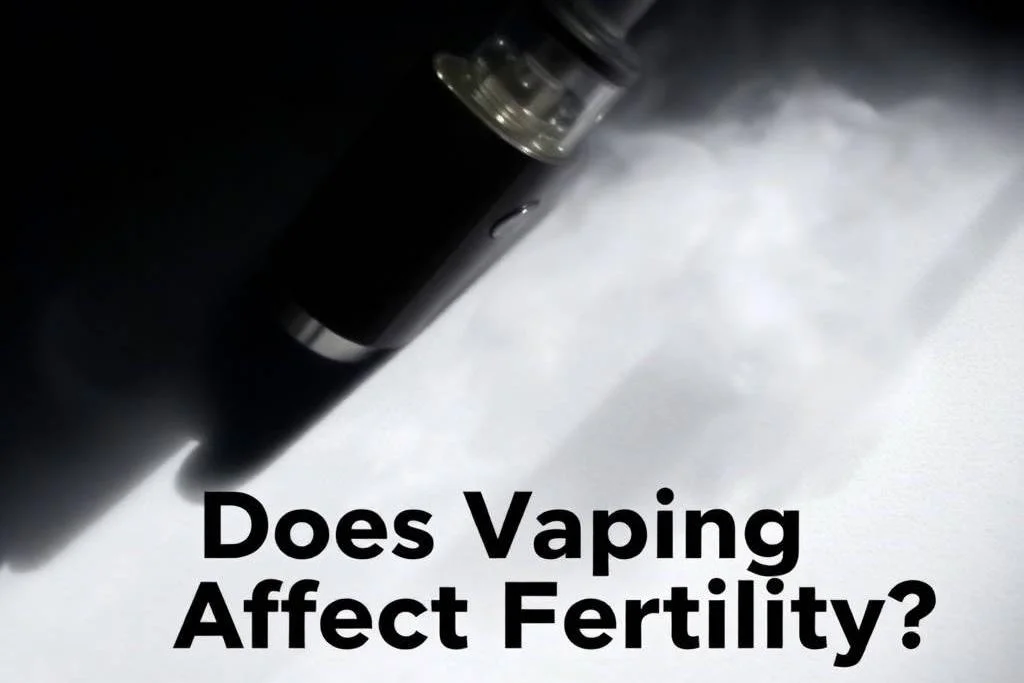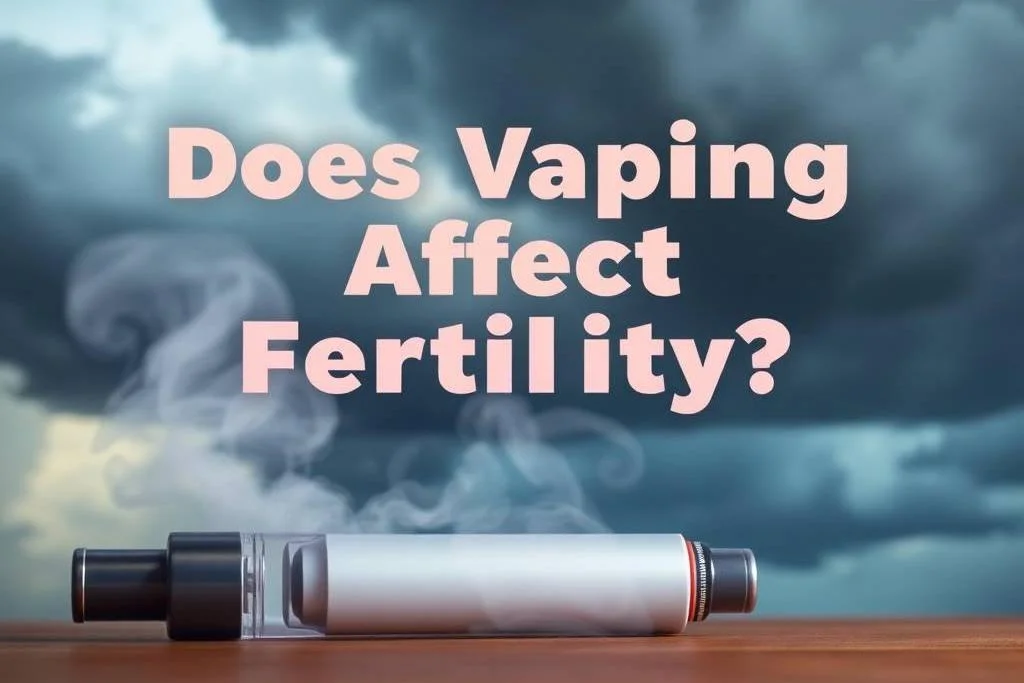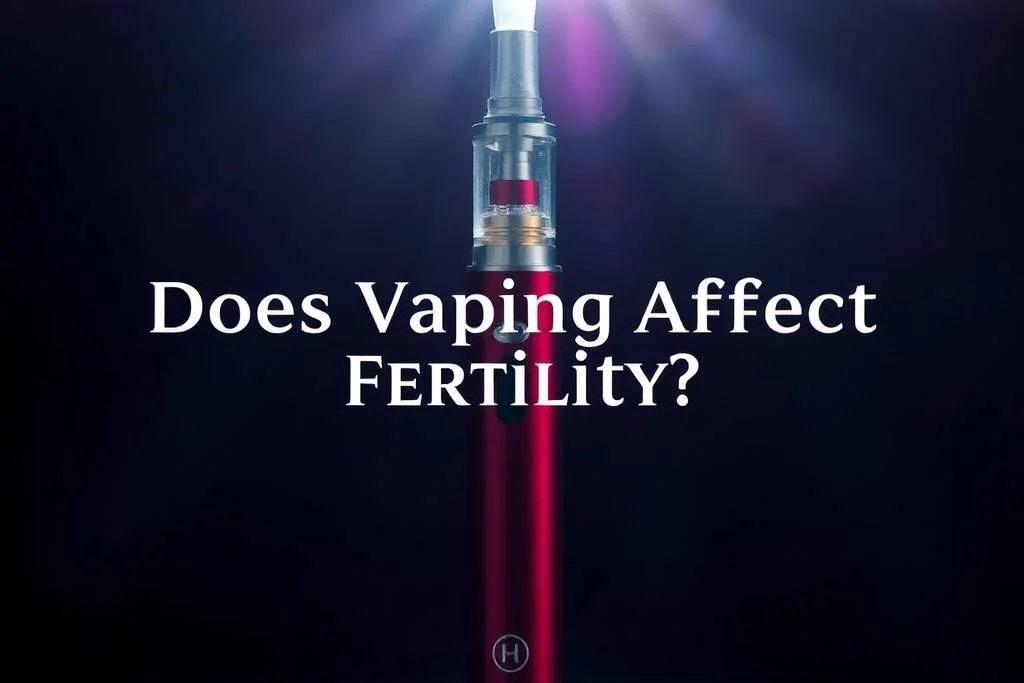Does Vaping Affect Fertility?
With the rise of vaping as a popular alternative to smoking, many are questioning how e-cigarettes impact long-term health — especially when it comes to fertility. Whether you're planning a family soon or just curious about the potential reproductive risks, understanding the effects of vaping on fertility is crucial.
Does Vaping Affect Fertility?
Yes, growing evidence suggests that vaping can negatively affect fertility in both men and women. Although often marketed as a safer alternative to smoking, e-cigarettes are not risk-free. Many contain nicotine, heavy metals, and other chemicals that may impair reproductive health.

How Vaping Affects Male Fertility
1. Reduced Sperm Count and Motility
Nicotine is a well-known vasoconstrictor, which means it can limit blood flow — including to the reproductive organs. Research indicates that exposure to nicotine and e-cigarette aerosol can lead to:
- Lower sperm concentration
- Decreased sperm motility
- Abnormal sperm morphology
2. Oxidative Stress
Vaping can increase oxidative stress in the testes. This oxidative damage can lead to DNA fragmentation in sperm, which may impair the ability to fertilize an egg or result in poor embryo quality.
3. Hormonal Disruption
Some animal studies suggest vaping may disrupt levels of testosterone and other reproductive hormones. While human data is still emerging, hormonal imbalance can affect libido, sperm production, and overall fertility.
How Vaping Affects Female Fertility
1. Ovarian Function
Nicotine and other chemicals in e-liquids may impact ovarian function. Some studies have shown reduced follicle count and impaired egg quality in females exposed to vaping aerosols.
2. Menstrual Irregularities
Vaping may interfere with hormone levels that regulate the menstrual cycle. Irregular cycles can make it harder to predict ovulation and reduce the chances of conception.
3. Implantation and Pregnancy Risks
Even if conception occurs, vaping may impact early pregnancy outcomes. Nicotine exposure is associated with reduced uterine blood flow and may hinder embryo implantation. There's also concern that vaping during early pregnancy could affect fetal development.

Does Vaping Without Nicotine Still Affect Fertility?
While nicotine is a primary concern, it's not the only harmful component. Many nicotine-free vapes still contain:
- Propylene glycol and vegetable glycerin
- Flavoring chemicals (some of which may be toxic)
- Heavy metals from heating coils
These substances can contribute to oxidative stress, inflammation, and cellular damage — all of which may negatively influence reproductive health.
Vaping vs. Smoking: Which Is Worse for Fertility?
Traditional cigarettes have long been linked to infertility in both sexes. Vaping is generally considered less harmful than smoking, but "less harmful" does not mean "harmless." If fertility is a priority, both smoking and vaping should be avoided.
Can Fertility Improve After Quitting Vaping?
Yes. Studies suggest that quitting nicotine can lead to improvements in hormone levels, sperm health, and menstrual regularity over time. The body has a remarkable ability to recover once exposure to harmful substances stops.
- Men may see improvements in sperm count and quality within 2–3 months of quitting.
- Women may notice more regular cycles and improved ovulation within a few cycles after cessation.

Conclusion
While vaping is often perceived as a safer alternative to smoking, it still poses risks — particularly for those concerned about fertility. Nicotine, heavy metals, and other harmful compounds in e-cigarettes can disrupt reproductive health in both men and women. If you're trying to conceive or planning to start a family, quitting vaping is a smart step toward protecting your fertility.



